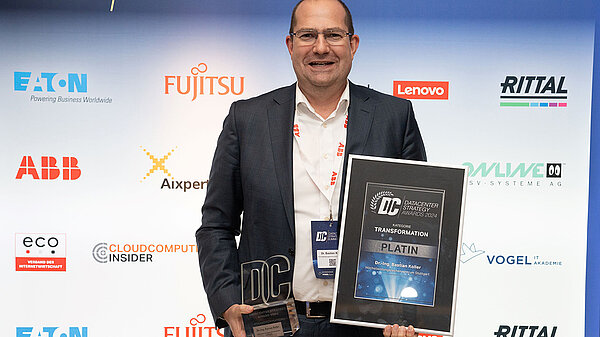High-Performance Computing Center Stuttgart

“I am very pleased about this award, which recognizes the success of our efforts in implementing sustainable strategies for high-performance computing,” said Dr. Bastian Koller, Managing Director of HLRS. “The concept for HLRS III shows that we not only provide high-performance computing resources, but are also aware of our responsibility to society. This award recognizes that technology and sustainability can go hand in hand.”
Construction of HLRS III will begin in 2025 in order to provide a home for HLRS’s upcoming exascale computer, called Herder, when it arrives in 2027. The new system will offer much higher performance over the center’s current supercomputer, known as Hawk, but with up to 8 MW of IT power will also have much higher energy demands. The aim of HLRS III is to make the data center future-proof and energy-efficient by combining sustainable materials, photovoltaic systems, and dynamic power management.
An additional, decisive component of the project is to build a facility for waste heat reuse for the Vaihingen campus of the University of Stuttgart. The heat generated by the new supercomputer will be captured and distributed across campus, contributing to its decarbonization.

HLRS already uses dynamic power management in the operation of Hawk. Under this approach the system’s maximum performance is limited to ensure the safe functioning of critical infrastructure components. This power management approach has been used in active production since early 2024 and demonstrates how to provide high-performance in an energy-efficient way. By combining dynamic power management with waste heat reuse, HLRS III will enable a more efficient, dynamic distribution of unused energy. In this way, HLRS and the University will reach a new milestone on the way to sustainability.
Since 2022, the Vogel IT Academy has presented the Datacenter Strategy Awards in the categories Transformation, Sustainability, and Innovation at the conclusion of its annual Datacenter Strategy Summit. The award in the Transformation category honors a project or strategy that decisively advances digital transformation and offers an organization concrete added value.
—Sophia Honisch
Funding for Hawk and HLRS's future systems, Hunter and Herder, is provided by the Baden-Württemberg Ministry for Science, Research, and the Arts and the German Federal Ministry of Education and Research through the Gauss Centre for Supercomputing (GCS). HLRS's sustainability activities are funded by the Baden-Württemberg Ministry of Science, Research and the Arts.